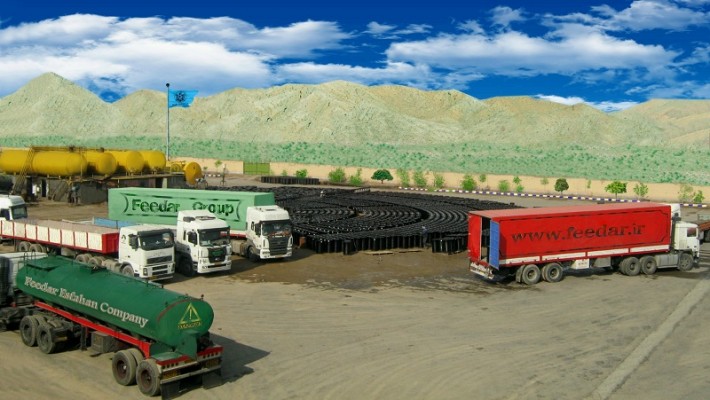
Drum mixers, which produce large volume of asphalts, require silo storage for the mixed material to account for peaks and troughs in demand. In such circumstances, mixtures are stored in hot silo as well as in the delivery vehicle during transportation.
Some hardening of the bitumen will take place during hot storage whether it is a silo or in a truck. It was stated above that the amount of hardening will depend principally upon the duration of exposure to oxygen, the thickness of the bitumen film and the temperature of the mixture. When a mixture is discharged into a storage silo, air enters with the mixture and some is trapped in the voids of the material. During the storage period, some of the oxygen in this entrained air will react with the bitumen. If no additional air enters the silo, oxidation of the bitumen will cease.
It is important that the entry and discharge gates are airtight and that there are no other openings where air can enter the silo. If the discharge gate is not airtight the silo may behave like a chimney drawing air in at the discharge gate (which exits the loading gate) resulting in oxidation and cooling of the stored material. In addition, the silo should be as full as practicable in order to minimize the amount of free air at the top of the silo. Air remaining at the top of the silo will react with the top surface of the material. This reaction forms carbon dioxide that, because it is heavier than air, tends to blanket the surface of the mixture protecting it from further oxidation. In the USA, some silos have the facility to be pressurized with exhaust gases, containing no oxygen, from a burner. These exhaust gases purge the silo of entrained air and provide a slight positive pressure preventing more air entering the silo.
Studies carried out in the USA suggest that if oxidation in the silo is limited to that induced by entrained air then little or no additional oxidation will occur during transportation and laying. It is hypothesized that this is because no significant quantity of fresh air is entrained in the mixture during discharge into the truck. Thus, little or no additional air is available for oxidation. In fact, it was observed that if the mixture was discharged directly from the pugmill into the delivery vehicle, the amount of hardening during transportation was very similar to that which occurs during silo storage.
If materials are being laid at low ambient temperatures or if the mixture has to be retained for a period in hot storage, there is a temptation to increase mixing temperatures to offset these two factors. However, increasing the mixing temperature will be lost because of additional oxidation of the bitumen which may adversely affect the long-term performance of the material.
